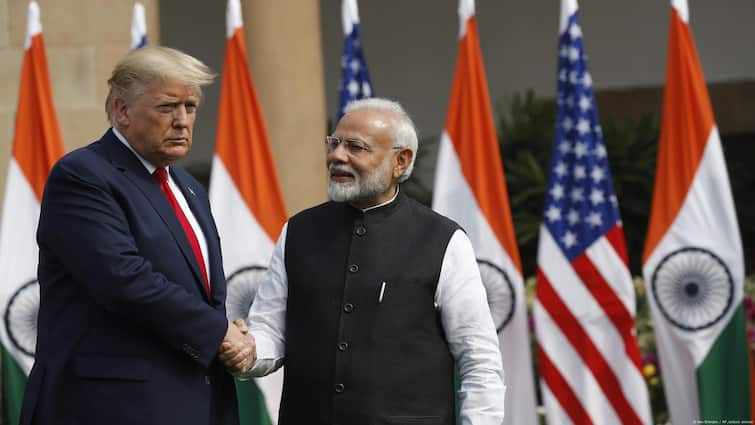India has denied that Prime Minister Narendra Modi and US President Donald Trump held a phone conversation regarding New Delhi’s purchase of Russian oil. On Thursday, the Ministry of External Affairs (MEA) contested Trump’s claim, stating that no such discussion had taken place.
“On the question of whether there was a conversation or a telephone call between Prime Minister Modi and President Trump, I am not aware of any conversation yesterday between the two leaders,” MEA spokesperson Randhir Jaiswal said during the ministry’s weekly press briefing.
Energy Imports Guided By Consumer Interest
Earlier in the day, the MEA issued a statement reaffirming India’s policy on energy sourcing, emphasising that safeguarding consumer interests remains a top priority amid global market volatility.
#WATCH | Delhi | On US President Trump’s statement over purchase of Russian oil by India, MEA Spokesperson Randhir Jaiswal says, “… On the question of whether there was a conversation or a telephone call between Prime Minister Modi and President Trump, I am not aware of any… pic.twitter.com/CqjfqCEO0p
— ANI (@ANI) October 16, 2025
“India is a significant importer of oil and gas. It has been our consistent priority to safeguard the interests of the Indian consumer in a volatile energy scenario. Our import policies are guided entirely by this objective,” Jaiswal said in a written statement on Thursday.
Trump’s Claims About Modi
During a press conference from the Oval Office, President Trump claimed that Prime Minister Modi had assured him that India would stop buying oil from Russia.
“I was not happy that India was buying oil. And he (Modi) assured me today that they will not be buying oil from Russia. That’s a big stop,” Trump told reporters.
Rising Trade Tensions
India’s purchase of Russian oil has drawn attention since August, after President Trump imposed an additional 25 percent tariff on New Delhi as a penalty.
With the latest increase, Trump’s tariffs on India rose to a total of 50 percent. In response, Prime Minister Modi said he would not compromise on the livelihood of farmers, even if it meant “paying a heavy price.”



